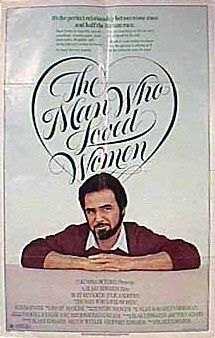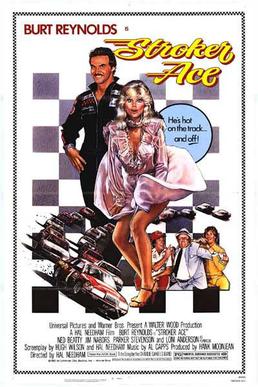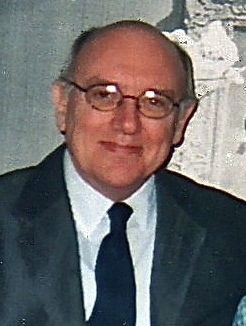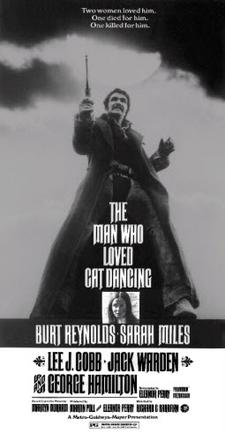Alan Smithee is an official pseudonym used by film directors who wish to disown a project. Coined in 1968 and used until it was formally discontinued in 2000, it was the sole pseudonym used by members of the Directors Guild of America (DGA) when directors, dissatisfied with the final product, proved to the satisfaction of a guild panel that they had not been able to exercise creative control over a film. The director was also required by guild rules not to discuss the circumstances leading to the movie or even to acknowledge being the project's director.

Betty Compson was an American actress and film producer who got her start during Hollywood's silent era. She is best known for her performances in The Docks of New York and The Barker, the latter of which earned her an Academy Award nomination for Best Actress.

Burton Leon Reynolds Jr. was an American actor, considered a sex symbol and icon of 1970s American popular culture. Reynolds first rose to prominence when he starred in television series such as Gunsmoke (1962–1965), Hawk (1966) and Dan August (1970–1971). Although Reynolds had leading roles in films such as Navajo Joe (1966) and 100 Rifles (1969), his breakthrough role was as Lewis Medlock in Deliverance (1972).

An Alan Smithee Film: Burn Hollywood Burn is a 1997 American mockumentary black comedy film directed by Arthur Hiller, written by Joe Eszterhas and starring Eric Idle as a director unfortunately named Alan Smithee, a traditional pseudonym used in Hollywood for directors disowning a project. The film follows Smithee as he steals the negatives to his latest film and goes on the run.

Bowen Charlton "Sonny" Tufts III was an American stage, film, and television actor. He is best known for the films he made as a contract star at Paramount in the 1940s, including So Proudly We Hail!. He also starred in the cult classic Cat-Women of the Moon.

Mackenna's Gold is a 1969 American Western film directed by J. Lee Thompson, starring an ensemble cast featuring Gregory Peck, Omar Sharif, Telly Savalas, Ted Cassidy, Camilla Sparv and Julie Newmar in lead roles. It was photographed in Super Panavision 70 and Technicolor by Joseph MacDonald, with original music by Quincy Jones.

Victor John Mature was an American stage, film, and television actor who was a leading man in Hollywood during the 1940s and 1950s. His best known film roles include One Million B.C. (1940), My Darling Clementine (1946), Kiss of Death (1947), Samson and Delilah (1949), and The Robe (1953). He also appeared in many musicals opposite such stars as Rita Hayworth and Betty Grable.

100 Rifles is a 1969 American Western film directed by Tom Gries and starring Jim Brown, Raquel Welch and Burt Reynolds. It is based on Robert MacLeod's 1966 novel The Californio. The film was shot in Spain. The original music score was composed by Jerry Goldsmith, who had previously also scored Bandolero!, another Western starring Welch.

Beatrice Joan Caulfield was an American actress and model. After being discovered by Broadway producers, she began a stage career in 1943 that eventually led to signing as an actress with Paramount Pictures. In the opinion of Ephraim Katz in The Film Encyclopedia, published in 1979, "For several years she was among Paramount's top stars, radiating delicate femininity and demure beauty."

Sam Whiskey is a 1969 American Western comedy film directed in DeLuxe Color by Arnold Laven and starring Burt Reynolds, Angie Dickinson, Clint Walker and Ossie Davis. "Way ahead of its time," said Reynolds of the film. "I was playing light comedy and nobody cared."

The Man Who Loved Women is a 1983 American comedy film directed by Blake Edwards and starring Burt Reynolds, Julie Andrews and Kim Basinger. It is a remake of the 1977 François Truffaut's film L'Homme qui aimait les femmes.

Stroker Ace is a 1983 American action comedy sport film directed by Hal Needham and starring Burt Reynolds as the eponymous Stroker Ace, a NASCAR driver.

White Lightning is a 1973 American action film directed by Joseph Sargent, written by William W. Norton, and starring Burt Reynolds, Jennifer Billingsley, Ned Beatty, Bo Hopkins, R. G. Armstrong and Diane Ladd. It marked Laura Dern's film debut.

Wanda is a 1970 American independent drama film written and directed by Barbara Loden, who also stars in the title role. Set in the anthracite coal region of eastern Pennsylvania, the film focuses on an apathetic woman with limited options who inadvertently goes on the run with a bank robber.

Edward Martino Crowley was an American playwright best known for his 1968 play The Boys in the Band.

Lawman is a 1971 American revisionist Western film produced and directed by Michael Winner and starring Burt Lancaster, Robert Ryan, Lee J. Cobb and Robert Duvall.

Skullduggery is a 1970 American adventure film directed by Gordon Douglas produced by Saul David and starring Burt Reynolds, Susan Clark. It is based on the French novel Les Animaux dénaturés (1952) by Jean Bruller.
William Wallace "Bill" Norton, Jr. was an American screenwriter particularly notable for his collaborations with Burt Reynolds Later in life, he was convicted of gun running in France when he tried to send arms from the United States to the Irish National Liberation Army in Northern Ireland. After being released from prison, he moved to Nicaragua, where he shot and killed an intruder in his Managua home. He later spent a year living in Cuba but became disillusioned with Communism and was reportedly smuggled from Mexico into the U.S. by his ex-wife.

The Man Who Loved Cat Dancing is a 1973 American Western film adaptation of Marilyn Durham's novel of the same name directed by Richard C. Sarafian, written by Eleanor Perry and William W. Norton, and starring Burt Reynolds and Sarah Miles.

Blue is a 1968 American Western film directed by Silvio Narizzano and starring Terence Stamp, Joanna Pettet, Karl Malden, Ricardo Montalbán, and Stathis Giallelis. The film was made in Panavision anamorphic and released by Paramount Pictures on May 10, 1968.


















